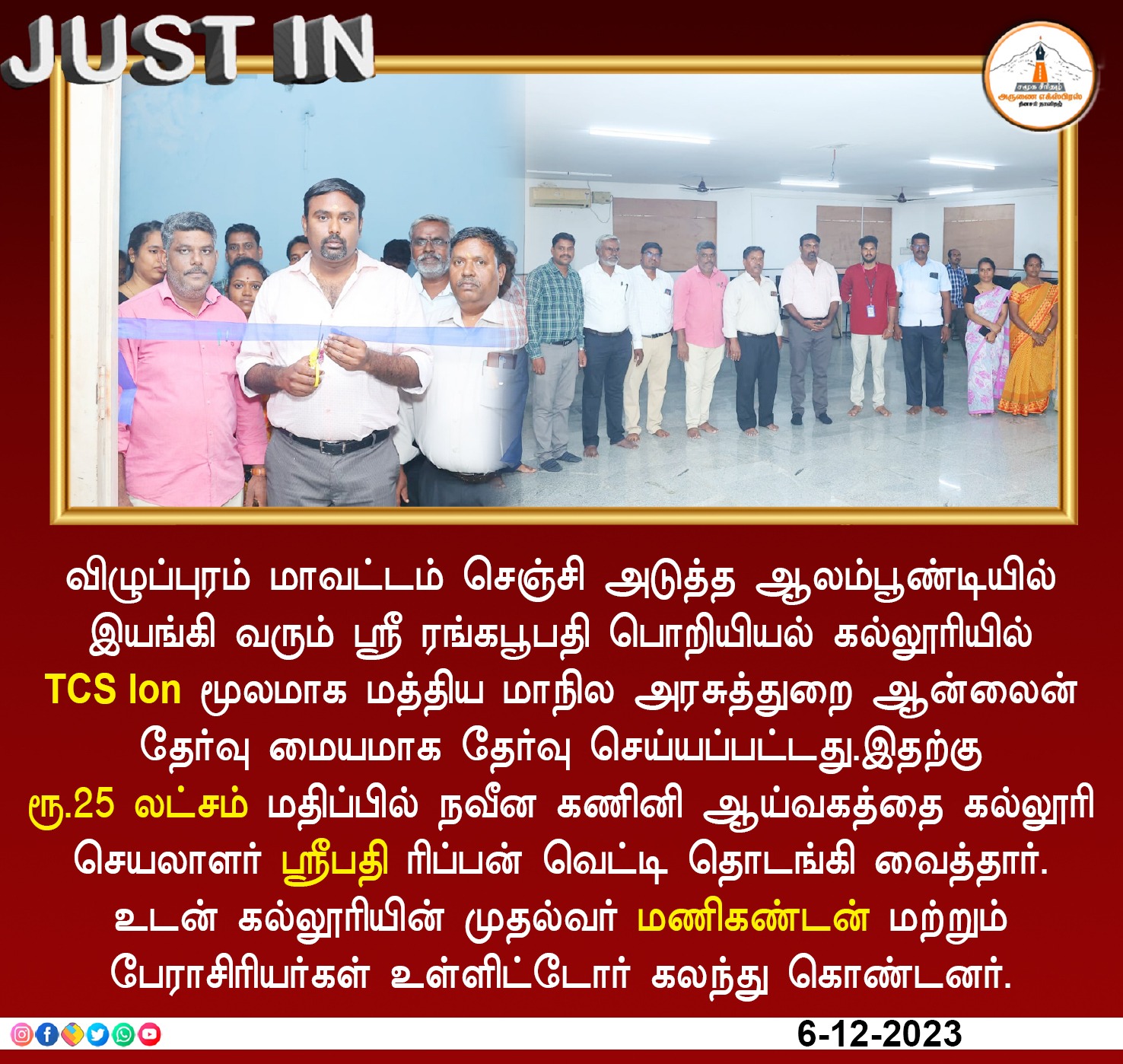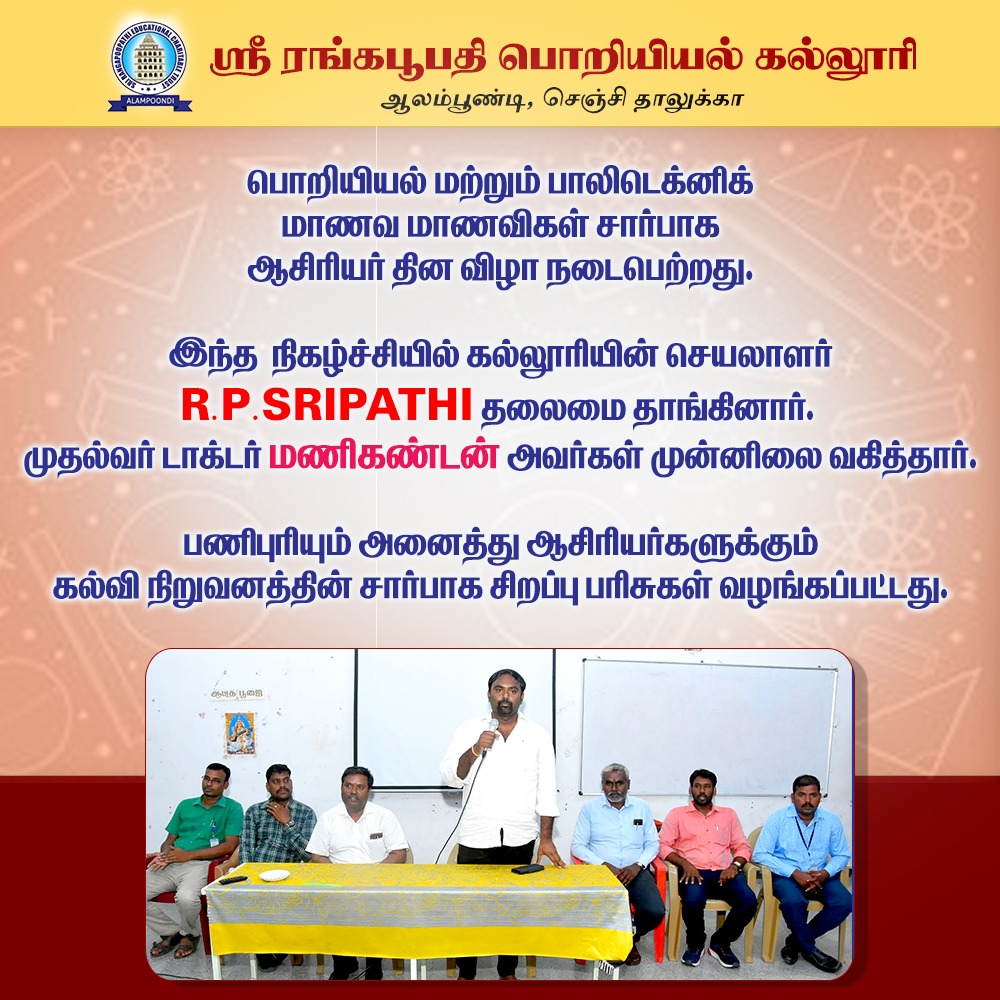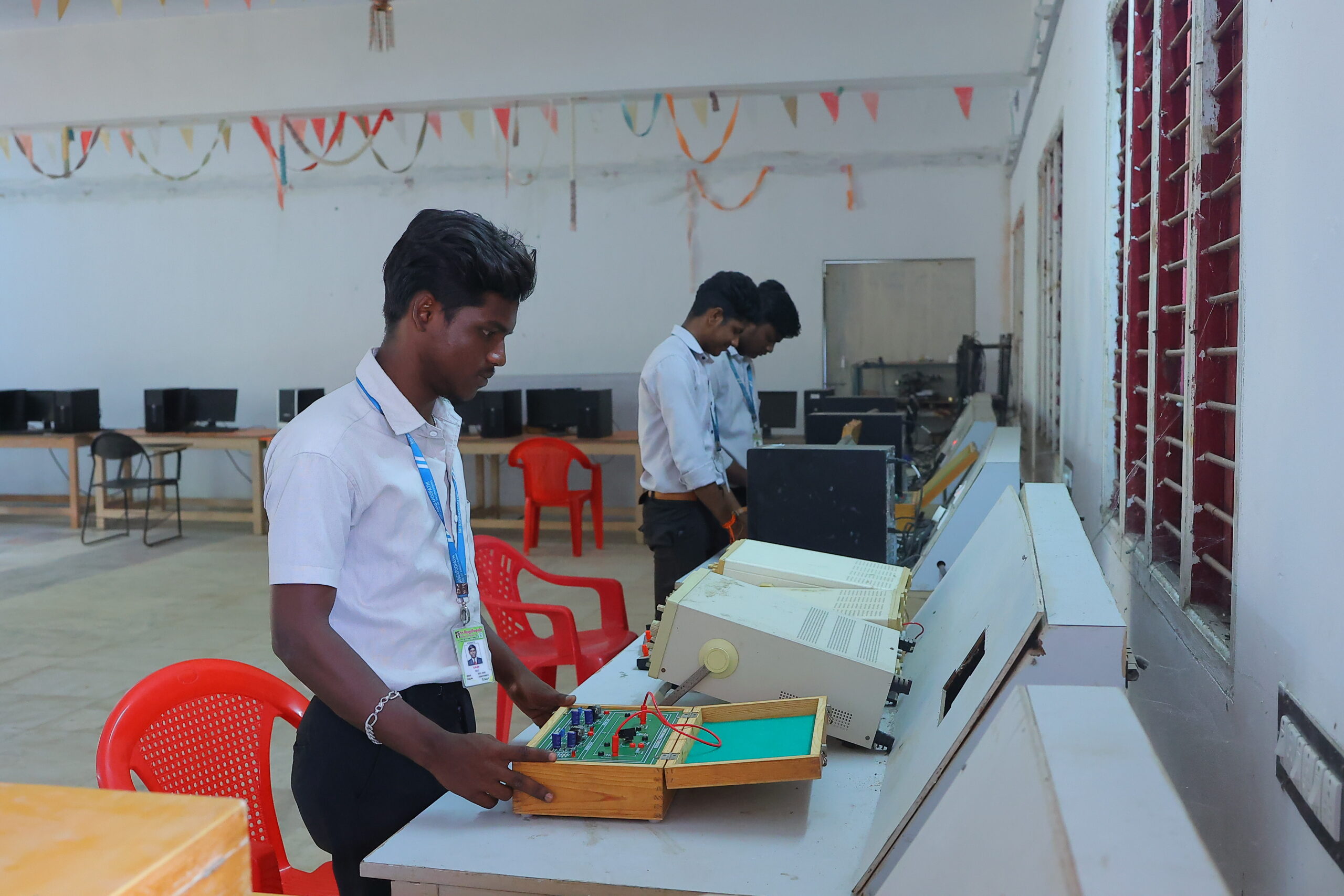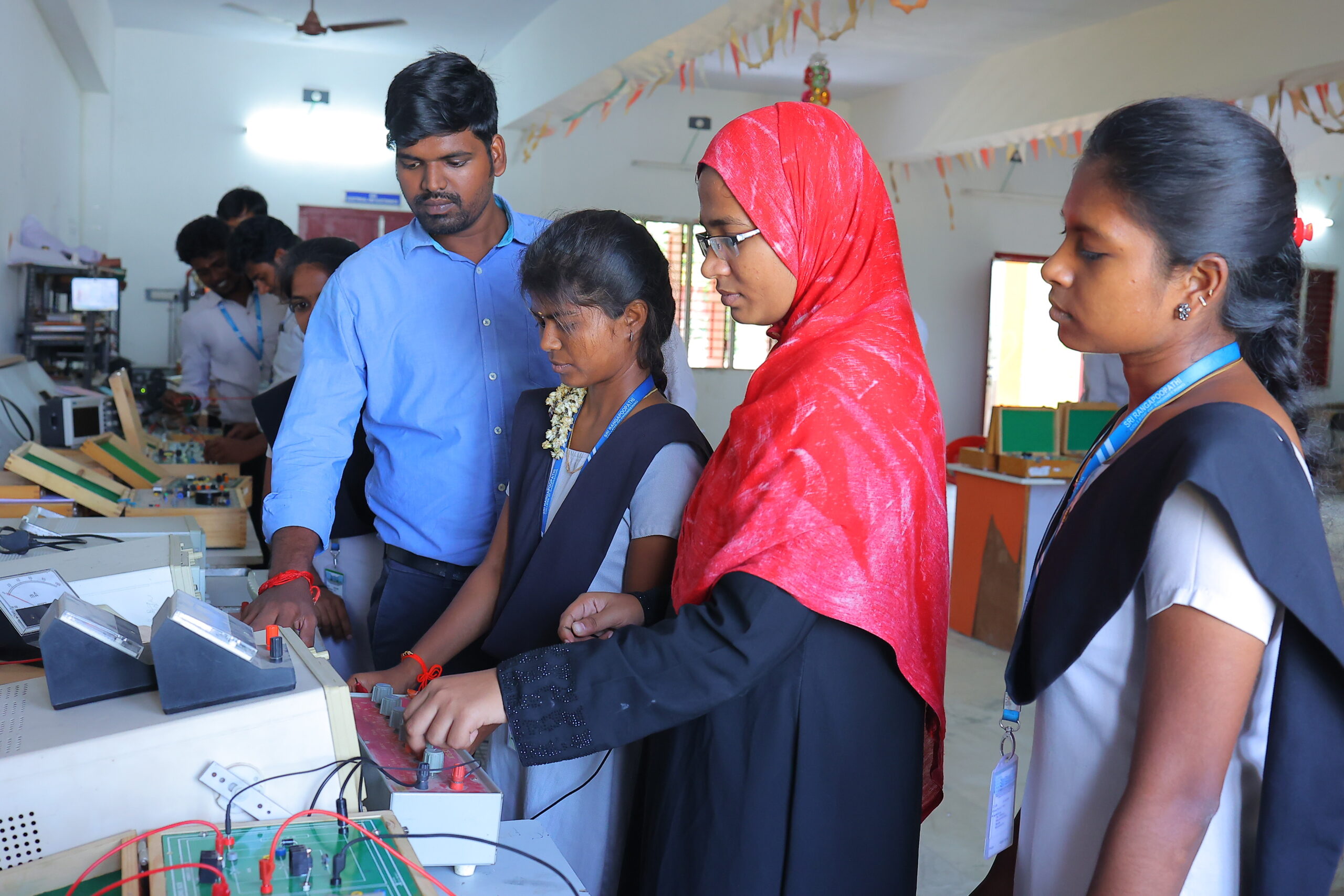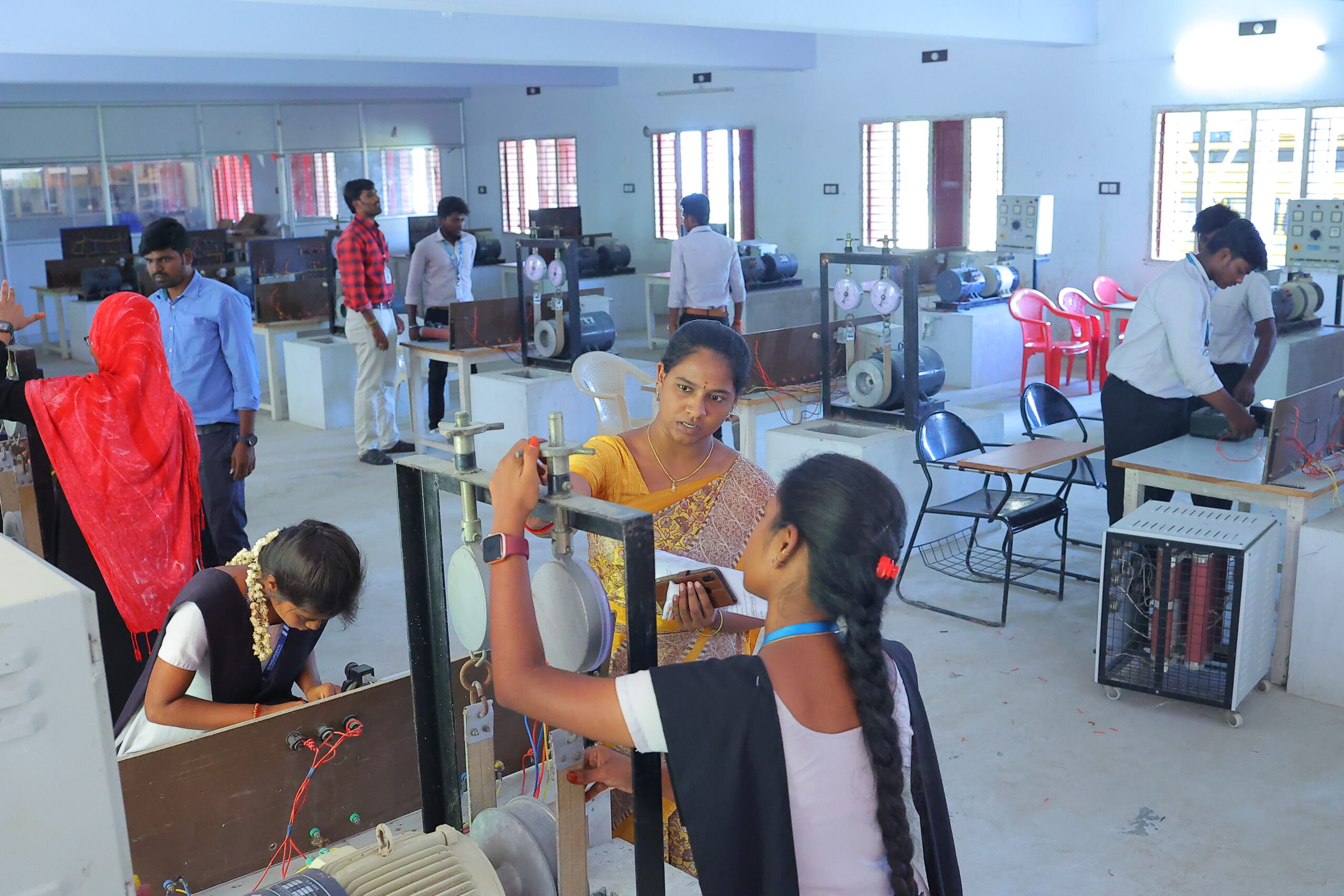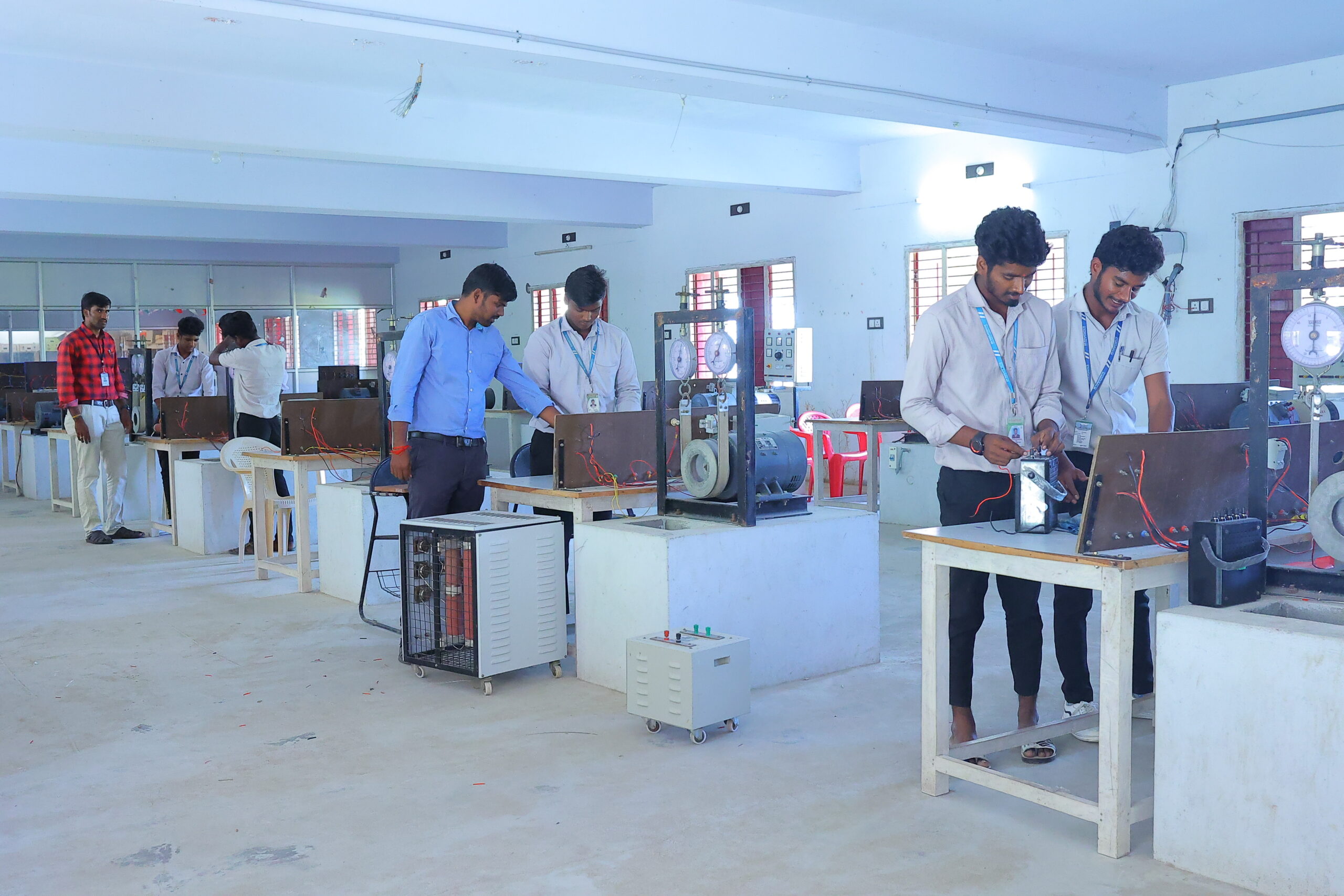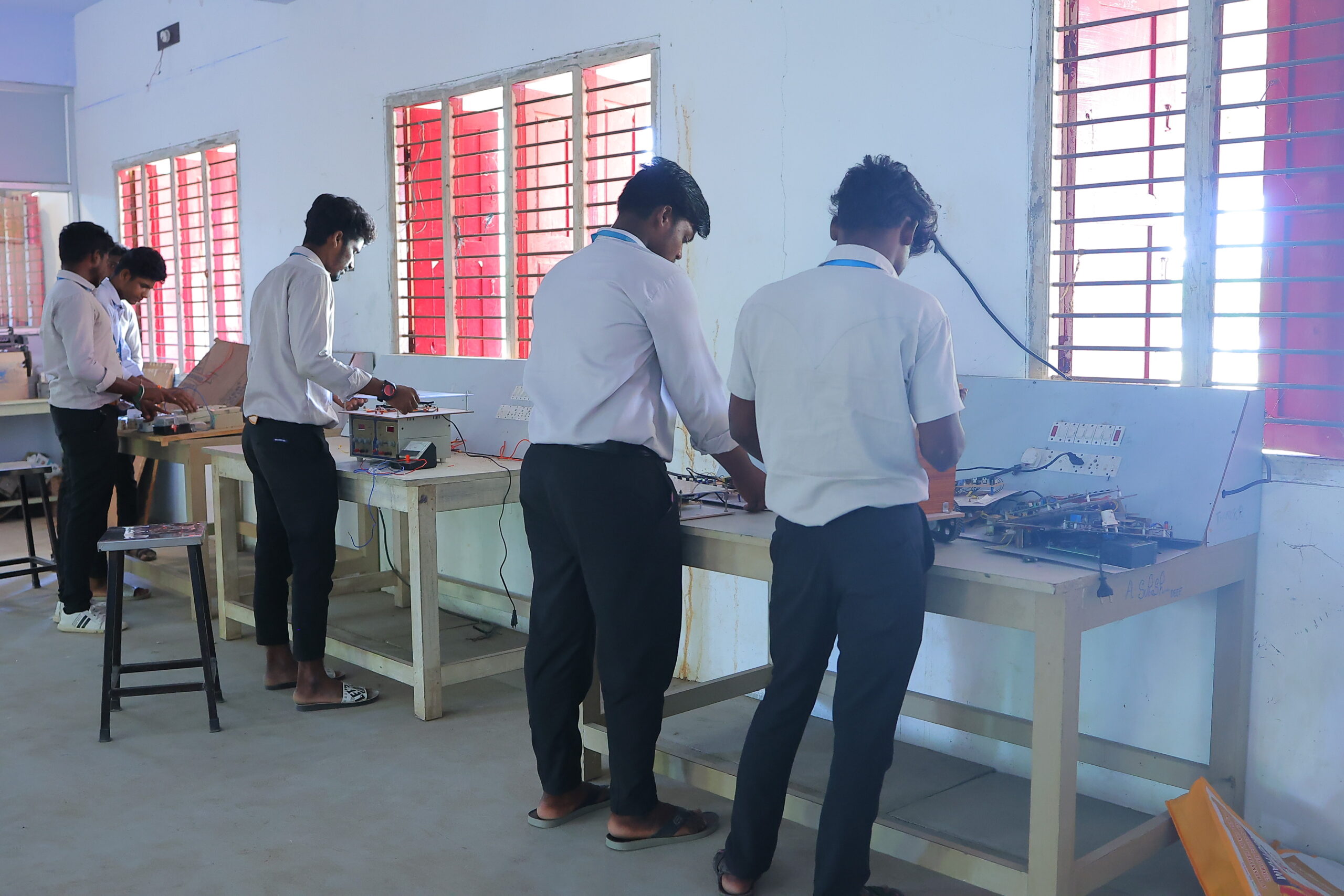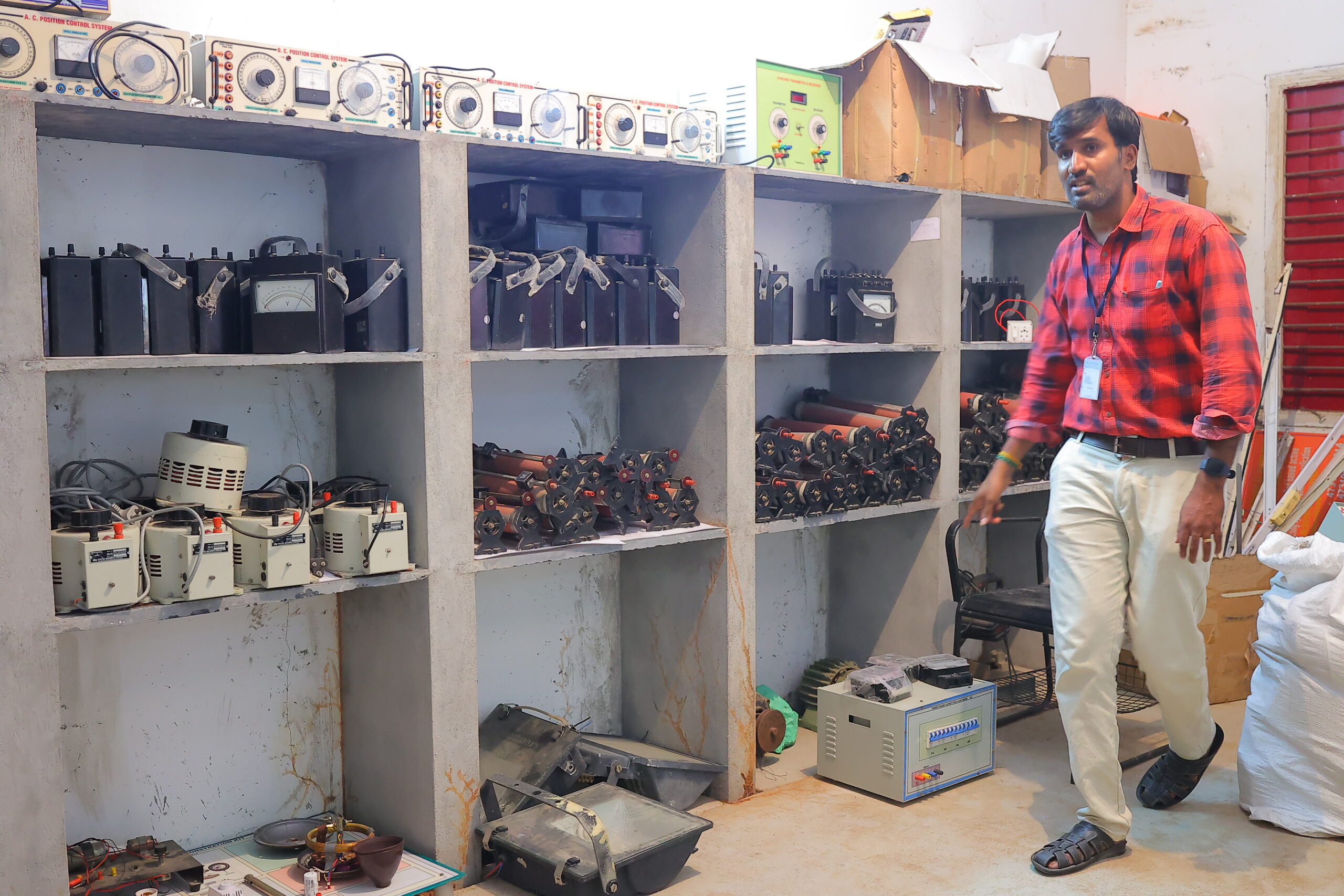Vision
The goal of the Electrical and Electronics Engineering department is to produce graduates who are globally competent, excel in their chosen fields, and go on to become creative researchers who have a strong commitment to the advancement of society.
Mission
Ø To produce enough electrical engineers to make a real difference in the development of socially conscious engineers.
Ø To equip students with the newest technology through the use of outcome-based education and industry-institute engagement in order to solve the increasing challenges facing the world.
Ø To provide chances for social responsibility and awareness-building in the field of electrical engineering.
Programme Educational Objectives
PEO1: Professional Enrichment
To improve the student’s ability to learn about math, science, and engineering and apply it in the real world within the restrictions of economics, the environment, society, politics, ethics, health and safety, manufacturability, and sustainability.
PEO2. Knowledge& Skills
Graduates will use embedded systems, power systems, and electrical drives and controls knowledge to address challenges in the real world with the aid of contemporary engineering tools.In order to satisfy the needs of society and industry, graduates will be able to plan, evaluate, and interpret data for a variety of investigations.
PEO3: Core Capacities
To improve the ability to recognize, articulate, comprehend, evaluate, develop, and solve engineering problems via hands-on experience with a variety of technologies and the use of cutting-edge tools that are crucial for engineering practice in order to meet societal and commercial objectives.
Programme Specific Outcomes
Graduates of the programme B E EEE will be able to
PSO1: Knowledge of Civil Engineering discipline
Demonstrate in-depth knowledge of Civil Engineering discipline, with an ability to evaluate, analyze and synthesize existing and new knowledge
PSO2: Critical analysis of Civil Engineering problems and innovation
Critically analyze complex Civil Engineering problems, apply independent judgment for synthesizing information and make innovative advances in a theoretical, practical and policy context.
PSO3: Conceptualization and evaluation of engineering solutions to Civil Engineering Issues
Conceptualize and solve Civil Engineering problems, evaluate potential solutions and arrive at technically feasible, economically viable and environmentally sound solutions with due consideration of health, safety, and socio cultural factors
Program Outcomes
PSO 1: Engineering Knowledge
The capacity to use knowledge of science, engineering, and mathematics (including probability, statistics, and discrete mathematics) to solve engineering problems, design and model.
PSO 2: Problem Analysis
Utilizing the fundamental concepts of mathematics, the natural sciences, and engineering sciences, one can identify, formulate, study research material, and analyze complicated engineering problems to obtain supported findings
PO3: Design/Development of Solutions
The ability to develop a sophisticated electrical process or system to satisfy specified requirements
PO4: Conduct Investigations of Complex Problems
To come to reliable findings, use research-based knowledge and research techniques, such as experiment design, data analysis and interpretation, and information synthesis.
PO5: Modern Tool Usage
The capacity to employ current engineering concepts, skills, and tools required for engineering practice
PO6: The Engineer and society
Assess societal, health, safety, legal and cultural issues and the resulting obligations pertinent to professional engineering practice using reasoning supported by contextual knowledge.
PO7: Environment and Sustainability
A comprehensive education is required to comprehend the effects of engineering solutions on a global, economic, and environmental scale and to show that one has the knowledge required for sustainable development.
PO8: Ethics
Apply moral principles, subscribe to professional ethics, and follow engineering practice expectations
PO9: Individual and Team Work
Effectively perform on their own, as members or leaders of varied teams, and in multidisciplinary contexts.
PO10: Communication
Effective presentations, clear instructions, the ability to understand and write effective reports and design documentation, and the ability to give and receive clear instructions are all examples of how to effectively communicate on complicated engineering operations with the engineering community and with society at large.
PO11 : Project Management and Finance
The capacity to manage projects in multidisciplinary settings using current engineering technologies, techniques, skills, and management concepts as a team member and team leader
PO12: Life-Long Learning
An understanding of the need for, and the capacity to engage in, contemporary problem-solving and lifelong learning
About the Department
The department of Electrical and Electronics Engineering was established in the academic year 2009-2010 with a sanctioned intake of 60. It has well-equipped Laboratories with state of art infrastructure labs. The department was well established with 7 laboratories namely Engineering Practices Laboratory, Electrical Machines Laboratory, Control and Instrumentation Laboratory, Electron Devices and Circuits Laboratory, Power Electronics and Drives Laboratory, Power System Simulation Laboratory and Renewable Energy Systems Laboratory. The course deals with areas of Circuit analysis, Electron devices and circuits, Electrical Machines, Control Systems, Measurements and Instrumentation, Power Electronics, Power Systems, High voltage Engineering, Renewable Energy Systems.
We have instructors who are highly qualified. In addition to working on research and development projects and routinely publishing their work in international journals and conferences, several faculty members have won best teacher honors from reputable international universities.The Department organizes workshops, refresher courses, and conferences for students in a variety of fields, as well as workshops, intra-college conferences, industrial visits, guest lectures, and hackathon competitions at the state and national levels.
Our students took part in extracurricular events sponsored by other institutions actively and earned medals.Students are given an exposure on industry environment through industrial visits, internship programs and onsite projects in various reputed organizations.
Latest Events
Hands on Workshop
Students Intake
PROGRAMME | DESCRIPTION |
Under Graduate Course B.E. in Electrical and Electronics Engineering | 60 Seats |
Library Facilities
In addition to the main library, our department has more than 200 books and CDs. The library also has project documentation, National and International publications, and textbooks. The library maintains a collection of university test questions in its personal question bank, along with lab guidelines.
Laboratories
The department has the following well-equipped laboratories,
Electrical Machines Laboratory
Control & Instrumentation Laboratory
Power Electronics Laboratory
Engineering Practices Laboratory
Power System Simulation Laboratory
Power Electronics & Drives Laboratory
Renewable Energy Systems Laboratory
